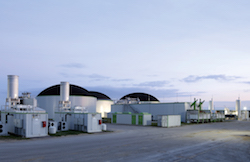A view of energy and transport in the future
The 'Scenarios for the transport system and energy supply and their potential effects' (STEPS) project brought together renowned research institutes with varied fields of expertise, external experts, government representatives, market parties, and transport and energy organisations. The scope of the EU-funded project centred on possible scenarios for the transport system and future energy supplies. The study considered the state of the art of relevant research and took into account factors such as autonomy of energy supply, environmental effects, and viability in terms of potential cost internalisation and interactions between land use and transport. With the changing landscape of energy supplies, the future of the transport system will follow advances in fuel technologies and the environmental impact they stand to make. Each newly proposed alternative fuel technology raises many issues, the handling of which will influence future patterns of mobility use as well as the use of land. The STEPS approach in considering the implications of choosing one technology over another was to investigate a series of scenarios in the economic, energy, social and transport fields. To build a set of scenarios, researchers mapped and described trends in transport and energy supply systems. Results of the scenario modelling were then analysed to cross-validate and determine if there was reasonable agreement concerning societal behavioural responses and major environmental effects. STEPS efforts showed that in all scenarios and models there was an improvement in energy and environmental criteria with the spotlight resting on demand management as opposed to technology investments. However, results showed that effects related to social response could not be as easily predicted, considering that higher transport costs may curb mobility patterns and accessibility to transport systems. Overall, the outcomes of the STEPS project provided a valuable look at trends and policy scenarios as well as their predicted effects, and can thus be utilised in future transport and energy-related policy discussions. The knowledge generated also provides a sound basis for contemplating crucial questions regarding energy sustainability and economic development, or the extent to which striving to realise environmental or social goals can inhibit economic growth.







